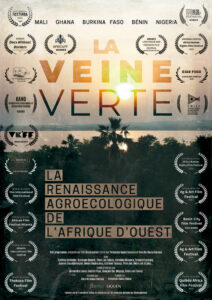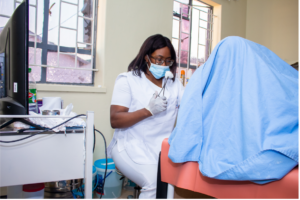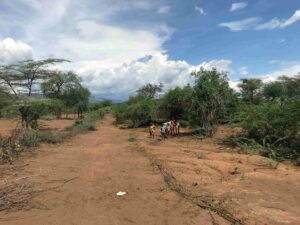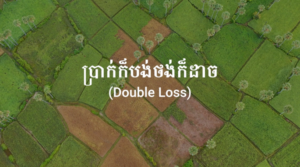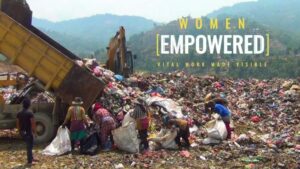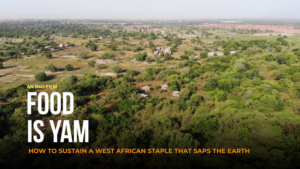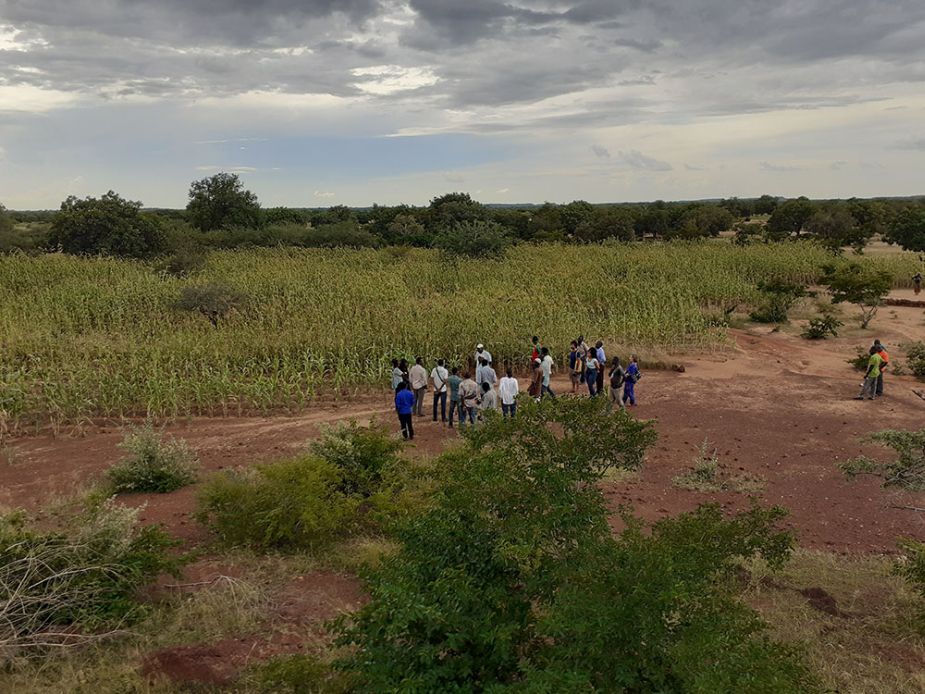
Growing hope on fertile soils
The researcher Fernando Sousa and the filmmaker Sara Baga travelled with precious luggage. Their “caravan” carried knowledge about organic fertilisers, home-bred insects for feeding fish or poultry, and many more results from five research projects of the Swiss Programme for Research on Global Issues for Development (r4d programme). Combining the results and experiences from all these projects, the caravan travelled 3500 kilometres across five countries. During its sixty days on the road using public transport and rental cars, the team met over 2000 people. Their main goal was to discuss and disseminate the findings of research on food security in Sub-Saharan Africa.
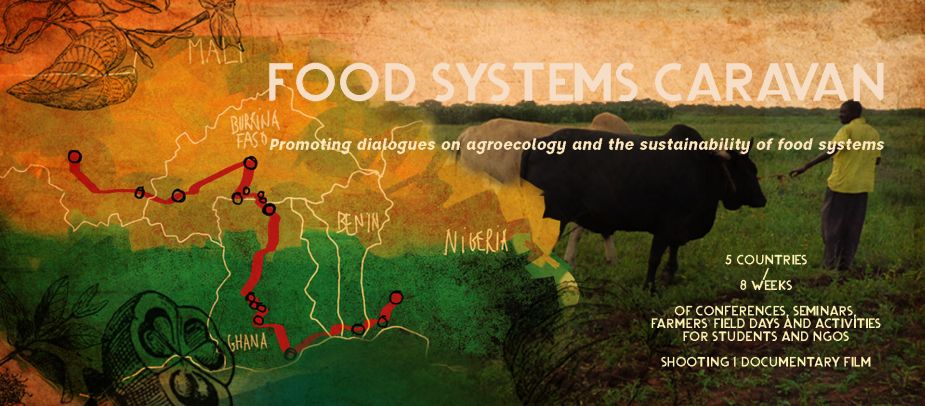
Picture 1: Food Systems Caravan in a nutshell.
Mali, Burkina Faso, Ghana, Benin and Nigeria. Fernando Sousa led the Food Systems Caravan team across different landscapes and cultural contexts. A trained biologist and a researcher at the Research Institute of Organic Agriculture (FiBL) in Switzerland, Sousa participates in the r4d project “Farmer-driven Organic Resource Management to Build Soil Fertility” (ORM4Soil) that aims at implementing new methods among local farmers for increasing soil fertility. The filmmaker and activist Sara Baga documented the journey, and also provided a gender perspective. The audio-visual documentation aims at spreading the word about both the caravan and the findings of the projects. “Most of our partners are based in Africa. The caravan was set up anew in each country”, says Fernando Sousa. Chinwe Ifejika Speranza from the University of Bern joined the caravan in Nigeria; she is a lead researcher in the r4d project “Towards Food Sustainability: Reshaping the Coexistence of Different Food Systems in South America and Africa” (FoodSAF).
Complex starting points
Food production remains a multi-layer problem. Small farmers feed much of the population in West Africa but are under pressure from many sides. They are at a disadvantage when competing with global market players. “There is immense inequality between large farms that mostly produce for export, and the small farmers. Many small farmers are indebted with microloans. What’s more, local markets are flooded with cheap imported wheat, cornflour and sugar”, says Sousa. Because these imported goods are subsidised in their regions of origin in Europe, the USA and Asia, they are often cheaper than local products.
The so-called “green revolution” promised greater yields and higher income through the use of chemical fertilisers and pesticides. But it comes at great cost. The existence of the farmers depends on imported agricultural goods. When costs rise due to variable prices on the global market, this causes existential distress among the farmers. “Green-revolution strategies remain short-sighted and are never sustainable: Yields increase in the beginning, but soil degradation and long-term decreases in yields are not taken into account”.
“In several instances, we were told of an increased number of cases of cancer and asthma. Even though there is no conclusive scientific proof, it is an indicator that farmers cannot afford protective clothing, and lack the knowledge needed when using pesticides in the fields”, adds Sousa. The learning process is only starting now.
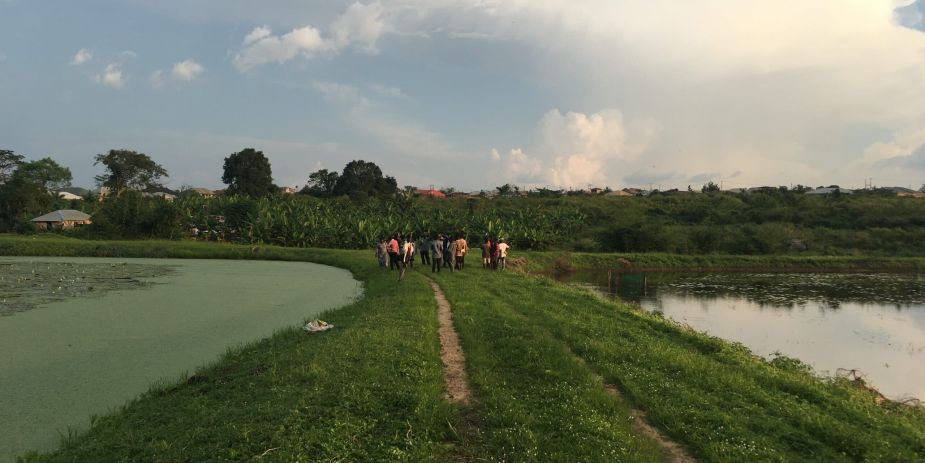
Picture 2: Together in the fields of the Dominican Centre for Human Resources Development in Ibadan, Nigeria, which is developing a 30 hectare eco-organic farm inspired by the Songhai project’s integrated agroecological model.
Paying into the soil account
Researcher Fernando Sousa adds: “Geographical disadvantages can make the situation worse, such as very old soils. Soils in West Africa contain less nutrients than their counterparts in Europe or North America. Moreover, a warmer climate leads to a faster degradation of organic matter and consequent loss of stored fertility. Soil is like a bank account. If you take out money continuously, your account is empty at some point”. For sustainable production, paying in is essential. Feeding soils and their microorganisms is the key to long-term fertility, and organic matter plays an important role in the system. Living soils erode less, store more water and are better at coping with extreme dry periods. “There are many reasons to invest in the regeneration of strong living soils. This is also true in Switzerland. But time is running out faster in West Africa because that region suffers from climate extremes and poverty.”
Sharing knowledge
The Food System Caravan’s progress through each country was marked by conferences and workshops at its stopover points. Meetings with students, farmers and NGOs were at the heart of the journey. “The r4d projects’ networks in the sustainable agriculture community meant we could engage with all the players involved in the food production system, from producers, the processing industry, retailers and consumers to the research community. We wanted to overcome traditional segregation”, says Sousa. “All our conferences included mixed workshop teams that developed recommendations and led to lively presentations and discussions.”
It became clear that scientists frequently lack traditional knowledge, whereas farmers most of the time do not have access to scientific results – often due to language barriers and widespread illiteracy. The caravan promoted interaction, not only in conference rooms, but also out on the fields.
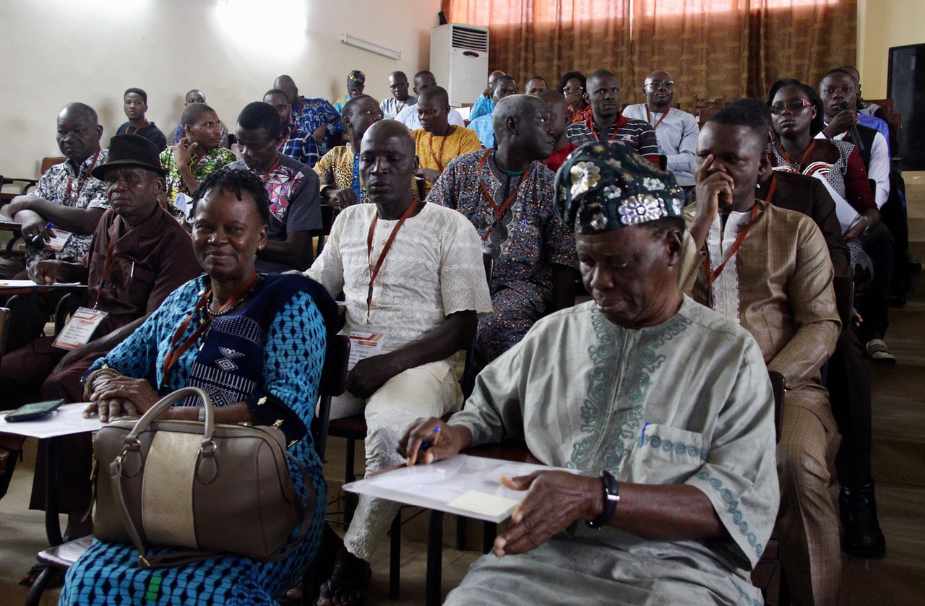
Picture 3: Fourth country conference in Cotonou, Benin. In the front row, Jeanne Zoundjihekpon and René Jinikun, both founding members of the agroecology federation of Benin (FAEB).
Closing the gaps
“We need to close the gaps. Imports and exports open too many of them. Specific options are available for changing food systems. However, national strategies to address these issues often lack at the moment”, says Sousa.
With their documentary film and short videos, Sousa and Baga want to inspire many more people with their results and interactions. “Bonnes pratiques” – good examples – aim to have an impact beyond the duration of the project, and feed the fire of continuous change. “I am happy to see the movie evolving and roaming”, says Sousa, “it shows the large number of people who are working towards change and are responsible for a growing number of success stories”. The gaps are starting to close.
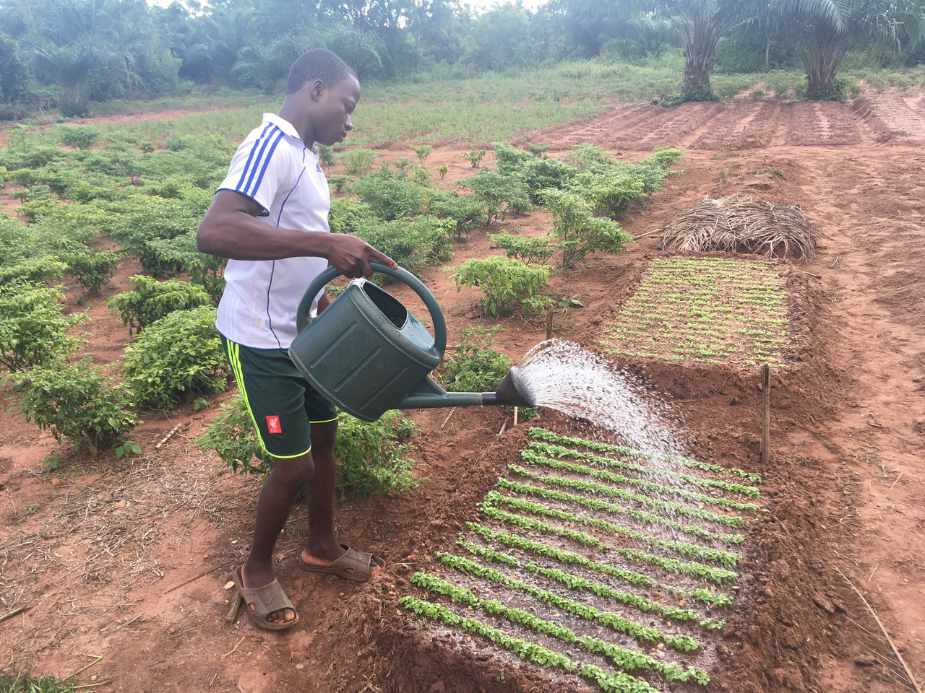
Picture 4: On the land of the agroecological project «Ferme Agro-pastoral Saint Joseph» near Abomey, Benin.
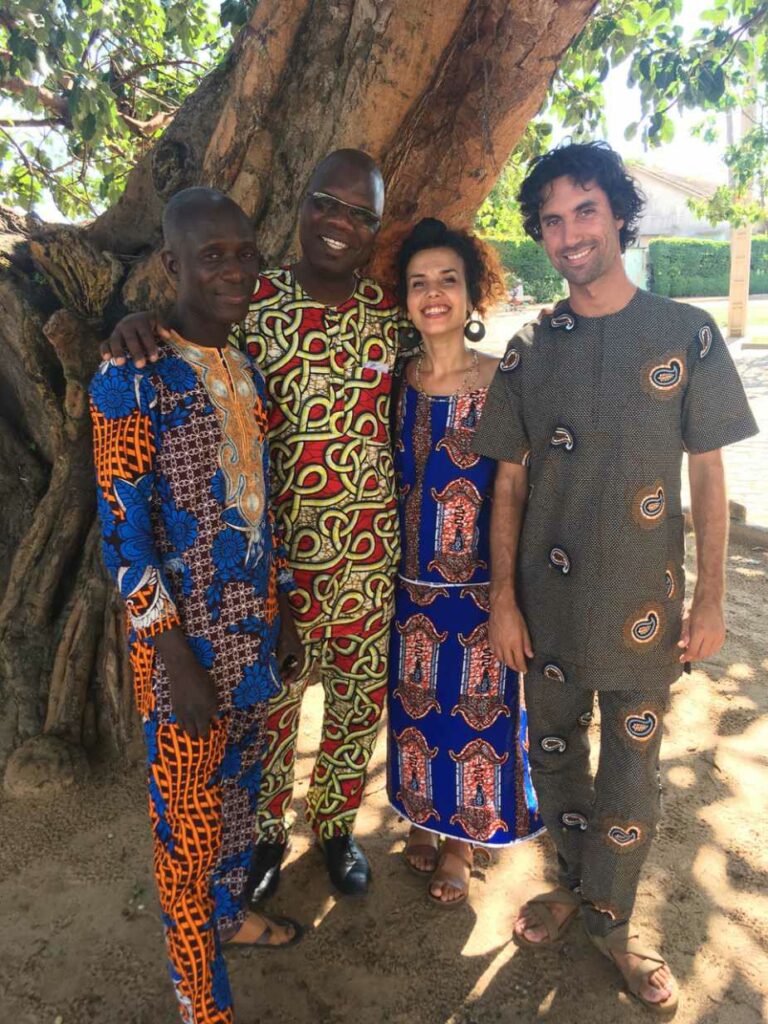
Picture 5: The core team of the Food Systems Caravan, Fernando Sousa and Sara Baga, with research colleague Charles Pomalegni and driver Claude, Benin.
Related Posts
The Green Vein: Agroecology Rising in West Africa
WOMEN EMPOWERED: Vital Work Made Visible
Sources
Contact:
Fernando Sousa, Research Institute of Organic Agriculture (FiBL), fernando.sousa@fibl.org.
Project:
r4d Food Security Synthesis “Food Systems Caravan West Africa”; https://foodsystemscaravan.org; https://www.facebook.com/foodsystemscaravan/; http://www.r4d.ch/r4d-programme/synthesis
With contributions from projects of the r4d module Food Security:
http://www.r4d.ch/modules/food-security
- ORM4Soil: Farmer-driven Organic Resource Management to Build Soil Fertility (Mali, Ghana, Zambia, Kenya); https://www.orm4soil.net/orm-home.html; http://www.r4d.ch/modules/food-security/building-soil-fertility
- DEMETER: Land Commercialization, Gendered Agrarian Transformation, and the Right to Food (Ghana, Cambodia); https://r4d-demeter.info; http://www.r4d.ch/modules/food-security/gender-and-the-right-to-food
- IFWA: Sustainable Use of Insects to Improve Livestock Production and Food Security in Smallholder Farms in West Africa (Burkina Faso, Ghana, Benin); http://www.insectsasfeed.org; http://www.r4d.ch/modules/food-security/insects-as-feed
- YAMSYS: Biophysical, institutional and economic drivers of sustainable soil use in yam systems for improved food security in West Africa (Burkina Faso, Côte d’Ivoire); http://yamsys.org; http://www.r4d.ch/modules/food-security/sustainable-yam-cropping
- FoodSAF: Towards Food Sustainability: Reshaping the Coexistence of Different Food Systems in South America and Africa (Bolivia, Kenya, Ghana, Zambia); https://www.cde.unibe.ch/research/projects/towards_food_sustainability/index_eng.html; http://www.r4d.ch/modules/food-security/food-sustainability
Event:
Online meeting “r4d Lunch #Agroecologyworks!” – Pre-screening of an early version of the documentary film about the Food Systems Caravan and discussions will take place on 22 and 23 April 2020, 12:00-14:15h, Central European Time (CET). Registration open until 15 April 2020:
http://www.r4d.ch/Events/Pages/200210_r4dLunchAgroecology_200407.aspx
